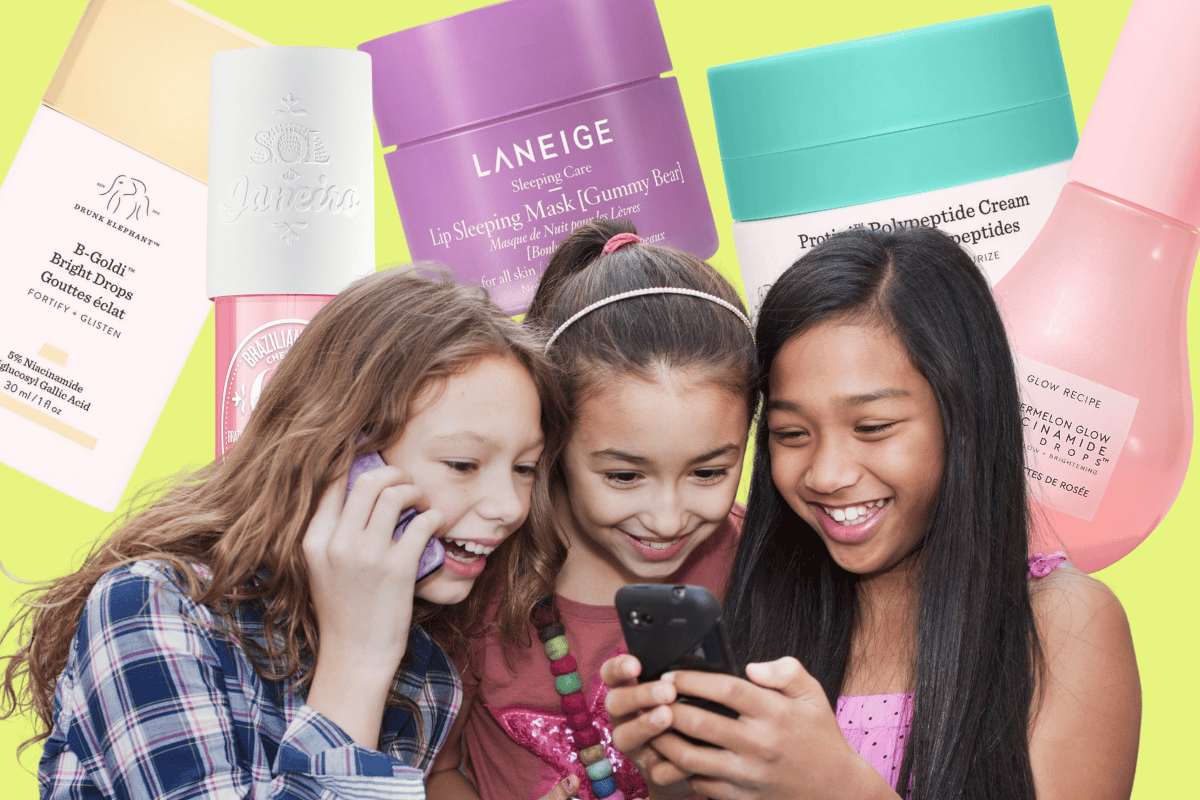
We need to talk about the tweens. Because some of the favourite beauty brands of millennials have now become the viral obsession of Gen Alpha. And people are not happy about it. Labelled as an "epidemic", you don't have to be a beauty lover to notice the slew of stories emerging about tweens taking over some of the world's biggest beauty retailers.
Take a scroll through TikTok and you'll see thousands upon thousands of people calling them out for absolutely 'ruining' their shopping experience — messy testers, gaggling crowds, big lines, sold out products, the lingering scent of Sol Janiero body mist...
Aged-13 and younger, these tweens are the youngest generation after Gen Z. And they have acquired a taste for high-end beauty. Brands like Drunk Elephant, Summer Fridays, Rare Beauty, Charlotte Tilbury, Glow Recipe and the aforementioned Sol Janeiro have exploded in popularity, filling wishlists and beauty baskets around the world.
Watch: Parents of Teenagers: Translated. Post continues.
Kelsey, 13, told Mamamia she used to go to retailers like Sephora and Mecca with her mum, but now likes to go with her friends from school. Some of her favourite products are from viral brands like Drunk Elephant, Rare Beauty and Sol Janiero.

Top Comments